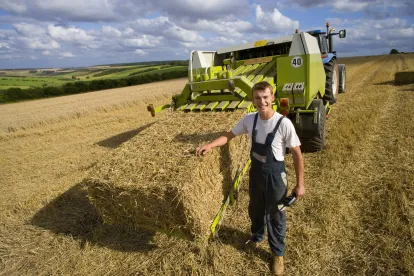A bipartisan group of senators, joined by Republican lawmakers in the House, have called for OSHA to halt an unprecedented effort to regulate small farms. EPA has not been spared either.
Forty-two senators wrote to Labor Secretary Thomas Perez earlier this month urging OSHA to stop what they called unlawful regulation of family farms. In separate correspondence, majority members of the House Committee on Education and the Workforce took their complaint directly to OSHA Assistant Secretary David Michaels. Congress has exempted farms with 10 or fewer employees from OSHA regulations since 1978, Committee members said.
Lawmakers’ concerns arise from a June 2011 OSHA memorandum that removes on-farm grain storage and handling operations from exempted farm operations. In their letter, the senators said the use of grain bins and grain drying equipment is an integral part of many farming operations and cannot be separated as a non-farming activity.
Perez was asked to respond by February 1 with a list of small farms that reportedly had been fined thousands of dollars because of being incorrectly categorized as non-farming activities. The House members gave OSHA until January 28 to deliver documents and communications regarding its policy change.
At the same time, legislators have gone to bat for farmers against EPA over a spill prevention, control and countermeasures (SPCC) rule the agency was to begin enforcing in September 2013. The regulation would require farmers with an aggregate above-ground storage capacity of 1,320 gallons or more for petroleum and animal fat products to have a written spill plan and a containment dike around containers of 55-gallons or larger. EPA has notified farmers it would enforce the act retroactively.
Legislation currently before Congress, if approved, would settle the matter. The latest version of a bill calls for a professionally written spill plan for farmers with above-ground storage of more than 20,000 gallons, a single container holding more than 10,000 gallons or a past reported spill. If the aggregate above-ground storage capacity is between 6,000 and 20,000 gallons, the plan may be written by the farmer personally.
The measure further directs EPA to consult with the Department of Agriculture to study the effect of exempting facilities with above-ground storage between 2,500 and 6,000 gallons based on the risk of discharge to water. The Senate has passed the measure, which now awaits House action.





 />i
/>i
